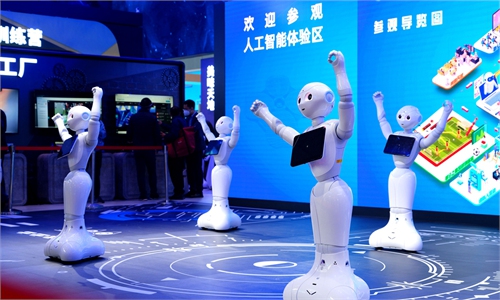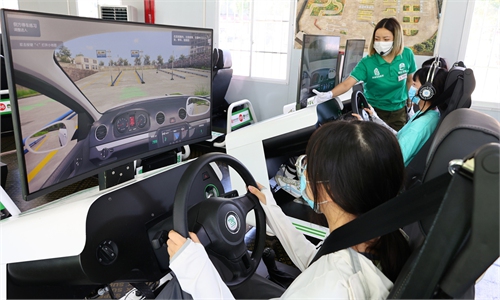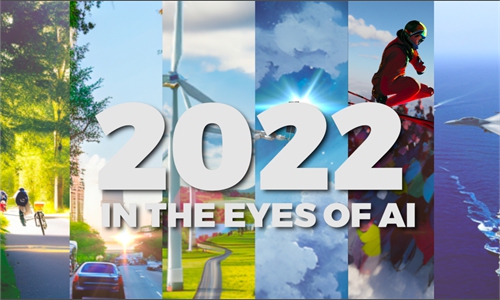SOURCE / PRESS RELEASE
Tech company Aibee merges AI, daily life

Hu Kaiwen, general manager of the Railway Department at Aibee Photo: Courtesy of Hu Kaiwen
Artificial intelligence (AI) is a top and eye-catching technology that has been developed in many countries around the world, including China. Beijing-based Aibee Intelligence Science & Technology Co is working to implement AI technology into more scenarios that are closer to people's lives amid fierce global competition in the field. Aibee's AI products have been used in commercial venues and transport hubs, which have greatly addressed the problems that people encounter when arriving at a new place.Hu Kaiwen, general manager of the Railway Department at Aibee, discusses the development trends in the Chinese AI industry and his company.
Q: Please introduce your career and what you have achieved?
A: I have about 18 years of experience in the industry. My first job was as a sales engineer for about five years, followed by three companies in the fields of technology, communications and AI, which gave me wealthy cross-industry experience and provided me a solid foundation for my current role as the general manager of Aibee's Railway Department.
Only one month after I joined Aibee, I led a team and developed a remote temperature measurement device for the entrance of shopping malls and transportation hubs that saw a high flow of visitors during the pandemic. This set an industry standard.
After six months of promoting and integrating our technology, Aibee's second major product line, an application for indoor scene modeling and a security monitor, was produced. This helped the company sign a contract, with a value of over 100 million yuan ($14.56 million), with the Beijing Sub-Center Integrated Transportation Hub in March 2021.
In the railway transport sector, I led the Aibee indoor VR and AR realistic navigation team, optimized a wayfinding system for passengers in transport hubs. The system has been implemented in transport hubs in five cities across China. The average project value is 40 million yuan, making the intelligent transportation segment Aibee's second largest revenue segment.
Q: Could you introduce the business scenarios in which Aibee's products are currently being used?
A: We are the first company in China to advocate the concept of "OOO," which stands for "Offline, Online, One-world" and establish ourselves as a "connector" between offline and online business.
Aibee's indoor navigation system is being used in more than 200 commercial venues and more than 30 transportation hubs across China. Our intelligent realistic navigation can guide shoppers and travelers to find any place they are looking for, even to smaller objects such as cars or an individual person.
Aibee's indoor tracking system can help operators of commercial venues know what is happening inside the venue - it can even track individual rubbish bins - and detect any abnormal behavior so they may develop proper management strategies and security response measures.
In addition, Aibee's smart parking solutions have been implemented in hundreds of car parks in dozens of cities. The system can increase average park efficiency by 37 percent and almost completely addresses the problem of customers finding their cars.
Q: Where does the development of China's AI companies in the global market stand?
A: Thanks to the big internet companies and the country's supportive policies, China has an abundant of talents in the AI industry. Most of them come from well-developed internet and tech firms.
Several leading internet companies and top scientists in the field are the cornerstone of China's AI industry.
I think in the coming three to five years, several giant Chinese enterprises in AI autonomous driving, vehicle-road integration, computer vision, big data analysis and other fields will be established.
Q: Do you think a successful technology company will benefit more from its own technological development or external demand?
A: There are a lot of good technology companies in China, and most of them have a development path that fits both directions. From my point of view, both factors are indispensable. But if I had to make a choice, I would prefer to enhance our own technology advantages. As a technology company, it is important to have some outstanding or even global leading technologies, but of course there is still a long way to go before it is finally marketed.



